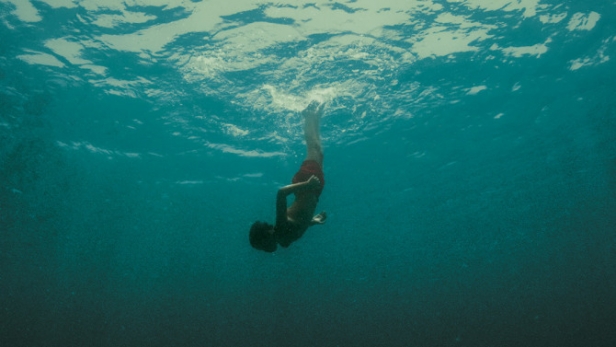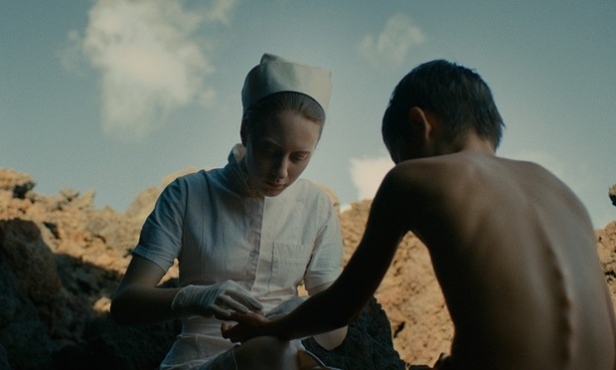Roughly ten years after her stunning debut feature Innocence, French filmmaker Lucile Hadzihalilovic has returned with a thematically similar but more deliberately strange experience. Beautiful, beguiling, shocking, surprising and quite extraordinary, Evolution is something rather special.
On an unnamed coastal island, young Nicolas lives with his mother (Julie-Marie Parmentier) by the sea in a community made up of boys his age, each of whom has a mother figure looking after them. One day while swimming, he sees the corpse of a young boy, but no one believes him.
Nicholas slowly begins to question his authority figure who gives him medicine, tells him that his body is changing and weakening, and takes him for tests at a nearby medical facility. What do the women do at night? What do they want from him and his friends? Is he really ill?
The answers are (mostly) there for those that are looking, but the great achievement of Evolution is not so much the puzzle (although the construction is certainly highly accomplished), but how it plunges the viewer into this world so completely.
Stunning underwater cinematography from Manuel Dacosse shows an incredible submerged world that is teeming with vibrant and almost extra-terrestrial life, from the rotting body of a large shellfish that scares Nicolas early on to the red starfish that becomes key, to the myriad shoals of fish and slippery tendrils reaching out for him.
Meanwhile, as we spend more time with these characters, we realise that we have no idea how any of the characters arrived at this place. There’s no exposition or unnecessary information. Hadzihalilovic gives us the clues we need to navigate the plot but anyone waiting for a grand revelation won’t get one.
We see the bulk of the film from Nicolas’ perspective and, as with Innocence, themes of adolescence are at play here (with young boys this time, rather than young girls), as the childlike urge to follow the instructions of someone who claims to have your best interests in mind battles against the dread of who these maternal figures are, what they want, and what they are capable of.

As the film moves on, Nicolas’ care is transferred from his mother to a kindly nurse (Roxane Duran), whose interest in him prompts yet more questions. Hadzihalilovic shows us glimpses of the women’s behaviour when the children are not alone, delivering some sequences that will linger in your memory long after the film has finished.
The performances are all excellent, with Parmentier and Duran (The White Ribbon) beautifully finding the middle ground between sympathetic, sinister, and utterly unreadable. Max Brebant is excellent as Nicolas, taking the character on his difficult journey while mostly remaining plausibly neutral as these unsettling events unfold.
If Innocence riffed on Angela Carter and Enid Blyton, Evolution leans much closer to horror, but placing it in one sub-genre feels reductive and inaccurate. As you may have gathered from reading this review, Evolution is a difficult film to talk about without giving anything away, but it’s a film that we highly recommend that you see, and see on the biggest screen possible.
With exquisite cinematography, an incredible atmosphere, strong performances and a terrific blend of swirling influences as varied as HP Lovecraft, body horror and Kazuo Ishiguro, Evolution is a stunning cinematic experience that is both beautiful and utterly engaging, and it will prompt further discussion and reward repeat viewing. It may have taken a decade for Hadzihalilovic to bring this strange tale to the screen, but this is a wonderful film that is absolutely worth the wait.
Evolution is playing on 12 and 13 October at the BFI London Film Festival. Find more information here.
